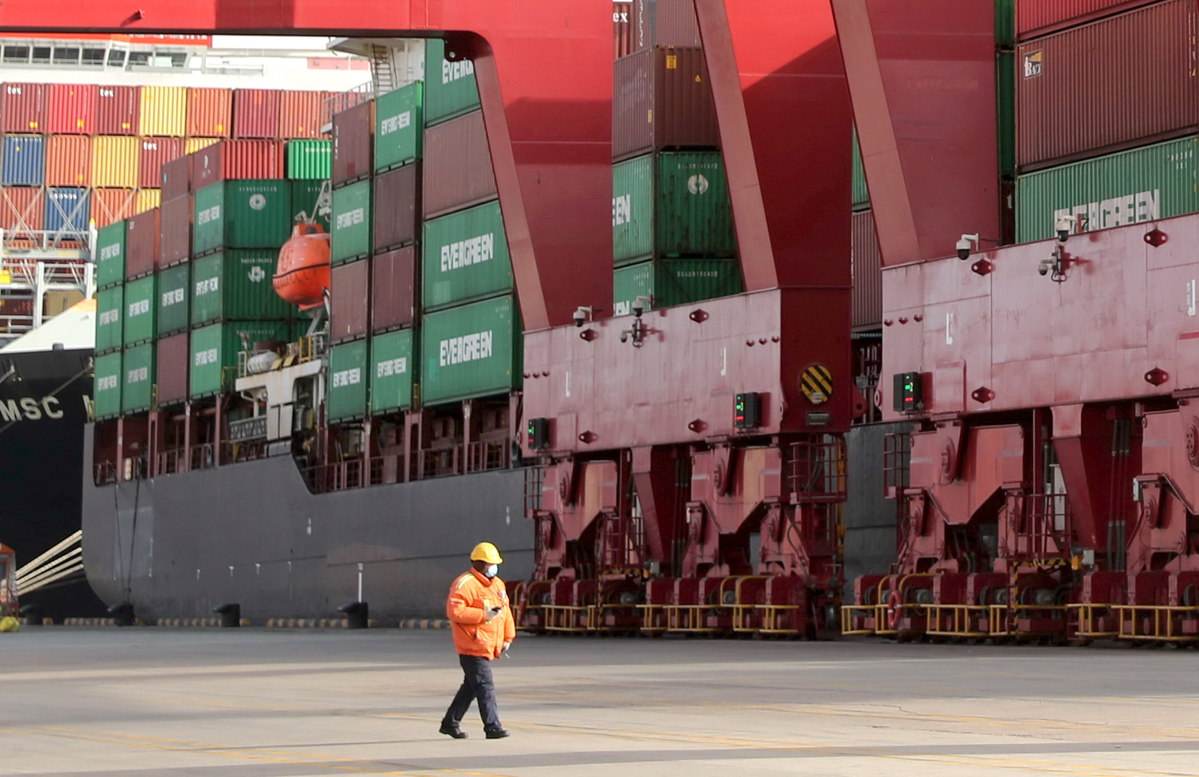FDI set to expand at a strong pace
By ZHONG NAN | China Daily | Updated: 2021-05-14 09:04

Robust performance of services and further market expansion to lift inflows
Foreign direct investment in China is expected to grow at a strong pace this year, thanks to the country's moves to further expand its domestic market and the robust growth of its services sector, said officials and business leaders.
Their remarks came after the Ministry of Commerce said on Thursday that China's actual use of foreign direct investment surged by 38.6 percent on a yearly basis to 397.07 billion yuan ($61.55 billion) in the first four months of this year.
The FDI value also represents a 30.1 percent increase over the same period in 2019, said Gao Feng, a spokesman for the ministry.
"Though many other countries have resumed production since the second half of last year, their industrial and supply chains are still incapable of competing with China, and the overall use of foreign capital will remain steady this year," said Zhao Ping, deputy head of the research institute of Beijing-based China Council for the Promotion of International Trade.
Supported by GDP growth and strong performances in manufacturing, services and foreign trade, she said China, backed by the new "dual circulation" development paradigm, in which the domestic market is the mainstay and the domestic and foreign markets reinforce each other, has emerged as a safe and lucrative market for FDI.
Liang Ming, a researcher at the Chinese Academy of International Trade and Economic Cooperation in Beijing, expects China to attract foreign capital of over $150 billion this year, maintaining the positive momentum.
China's move to further open up the services sector in key regions, including Shanghai and Hainan province in late April, will also prompt foreign companies to provide more quality services in the Chinese market, and push domestic players to promote innovation and advance the country's supply-side structural reform, said Liu Tao, a researcher at the institute of market economy at the Development Research Center of the State Council.
China's services sector attracted FDI of 312.94 billion yuan between January and April, up 46.8 percent on a yearly basis, accounting for most of the FDI during the four-month period, data from the Ministry of Commerce showed.
In the meantime, FDI in China from other economies related to the Belt and Road Initiative, the Association of Southeast Asian Nations and the European Union grew by 62.8 percent, 65.2 percent and 9.2 percent, respectively, on a yearly basis. BSH Home Appliances Corp, a German consumer goods manufacturer, will open its new headquarters building in Nanjing, Jiangsu province, by the end of this month, after establishing a research and development center in Nanjing and expanding its production capacity with a new washing machine and dryer factory at its manufacturing base in Chuzhou, Anhui province, last year.
"BSH underwent a fairly positive growth in the Chinese market last year. And that growth is something we want to maintain and continue over the next few years," said Matthias Ginthum, the company's chief marketing officer.
He said the company aims to further expand its market share and will continue to increase its investment in China, especially in innovation and manufacturing activities during the country's 14th Five-Year Plan period (2021-25) and beyond, he said.
Eager to seize more market share from China's consumption and industrial upgrading boom, Swire Coca-Cola Ltd, a bottler of Coca-Cola beverages, also plans to install a manufacturing information system at its 18 plants, which house nearly 100 production lines across the country over the next two years.
"Many opportunities will come from China's surging demand for various beverages, in particular low-sugar and sugar-free beverages, digital technology-led industrial upgrading, the government's goal to peak carbon emissions by 2030 and achieve carbon neutrality by 2060," said Karen So, managing director of Swire Coca-Cola.
The Hong Kong-headquartered company will add nine advanced production lines in the Chinese mainland, which began last year and will continue this year, to further boost its production efficiency. It will also partner with other technology companies, such as Germany's Siemens AG, to push China's beverage industry into a digital era.
























